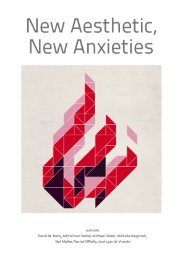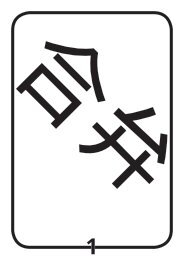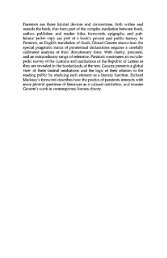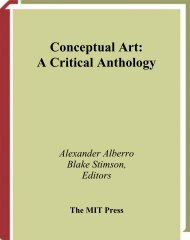Create successful ePaper yourself
Turn your PDF publications into a flip-book with our unique Google optimized e-Paper software.
working class's incapacity to become politicized should likely be sought amidst<br />
this abundance of televised baseness. By obtaining through collective pressure a<br />
slight rise in the price of its labour above the minimum necessary for the<br />
production of that labour, the proletariat not only enlarges its power of struggle<br />
but also widens the terrain of the struggle, New forms of this struggle then occur<br />
parallel with directly economic and political conflicts. Revolutionary propaganda<br />
can be said until now to have been constantly dominated in these forms of<br />
struggle in all countries where advanced industrial development has introduced<br />
them. That the necessary transformation of the base could be delayed by errors<br />
and weaknesses at the level of superstructures has unfortunately been proven by<br />
some of the twentieth century's experiences. New forces must be hurled into the<br />
battle over leisure, and we will take up our position there.<br />
A first attempt at a new manner of deportment has already been achieved with<br />
what we have designated the denve, which is the practice of a passionate<br />
uprooting through the hurried change of environments, as well as a means of<br />
studying psycho geography and situationist psychology. But the application of this<br />
will to ludic creation must be extended to all known forms of human relationships,<br />
and must, for example, influence the historical evolution of emotions like<br />
friendship and love. Everything leads to the belief that the main insight of our<br />
research lies in the hypothesis of constructions of situations.<br />
A man's life is a sequence of chance situations, and if none of them is exactly<br />
similar to another, at the least these situations are, in their immense majority, so<br />
undifferentiated and so dull that they perfectly present the impression of<br />
similitude. The corollary of this state of affairs is that the singular, enchanting<br />
situations experienced in life strictly restrain and limit this life. We must try to<br />
construct situations, i.e.) collective environments, ensembles of impressions<br />
determining the quality of a moment. If we take the simple example of a gathering<br />
of a group of individuals for a given time, and taking into account acquaintances<br />
and material means at our disposal, we must study which arrangement of the site,<br />
which selection of participants, and which incitement of events suit the desired<br />
environment. Surely the powers of a situation will broaden considerably in time<br />
and in space' !'lith the realizations of unitary urbanism or the education of a<br />
situationist generation. The construction of situations begins on the other side of<br />
the modern collapse of the idea of the theatre. It is easy to see to what extent the<br />
velY principle of the theatre - non-intervention - is attached to the alienation of<br />
the old world. Inversely, we see how the most valid of revolutionary cultural<br />
explorations have sought to break the spectator's psychological identification with<br />
the hero, so as to incite this spectator into activity by provoking his capacities to<br />
revolutionize his own life. The situation is thus made to be lived by its<br />
constructors. The role of the 'public', if not passive at least a walk-on, must ever<br />
98// ARTISTS' WRITINGS








